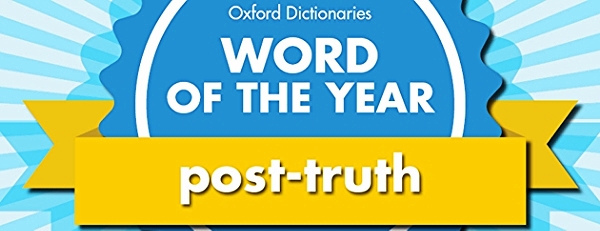Ben Wilbrink (9 november 2018). Reblogged from Komensky Post
Hoe zit het ook alweer met Onderwijs_2032, was dat niet
afgeschoten door de Tweede Kamer, na twee rondetafelgesprekken? Na
deze rondetafel aangenomen moties zijn, onder andere,
– Motie Rog c.s.: “over geen ontwikkelteams
inrichten die gericht zijn op persoonsvorming of
vakoverstijgende vaardigheden (31293, nr. 362)” Misschien is
deze tekst dubbelzinnig, maar mijns inziens betekent het dat
een ontwikkelteam wiskunde zich richt op wiskunde, niets
anders.
– Motie Bruins c.s.: “over in de
…………
…………
Lees verder op Komensky Post
===============================================================================
Alle links/referenties uit de Komensky-blog op rij
1. Ben Wilbrink (19 april 2017). Kirschner vs Stevens tijdens hoorzitting: ideologie tegenover psychologie. Komensky Post blog
2. Tweede Kamer (20 april 2017). Stemmingen moties VAO Curriculumherziening p.o. en vo. pdf
3. Motie Rog c.s. (Kamerstuk 31 293 Nr. 362) tekst
4. Motie Bruins c.s. (Kamerstuk 31 293 Nr. 365) tekst
5. Motie Bruins c.s. (Kamerstuk 31 293 Nr. 366) tekst
6. Motie Van Meenen c.s. (Kamerstuk 31 293 Nr. 367) tekst
7. Eindadvies Platform Onderwijs2032 (23-01-2016). Ons onderwijs2032. ophalen
8. curriculum.nu thuis
9. Onderwijsraad (8 november 2018). Verruim de onderwijsbevoegdheden en loopbaanperspectieven van leraren. persbericht
10. Commissie Parlementair Onderzoek Onderwijsvernieuwingen (13 februari 2008). Eindrapport. pagina
11. Ben Wilbrink (11 april 2016). Eindadvies Platform Onderwijs 2032: hoe is het wetenschappelijk verantwoord? (en daaropvolgende blogs ) blogreeks
12. Ontwikkelteam Rekenen & Wiskunde curriculum.nu webpagina
13. Ontwikkelteam Rekenen & Wiskunde (oktober 2018). Derde tussenproduct. pdf
14. Ben Wilbrink (29 oktober 2018). Curriculum_nu en rekenen/wiskunde. De bronnenlijst is onthullend voor waar we hiermee te maken hebben. Twitter draad 50 tweets pagina
15. Camilla Gilmore, Silke M. Göbel & Matthew Inglis (2018). ‘An introduction to mathematical cognition’ Routledge. info
16. Ben Wilbrink. Problemen stellen. Hoofdstuk 7 in ‘Toetsvragen ontwerpen’. (oorspronkelijk: in (1983) Poetsvragen schrijven. Aula 809. Onderwijskundige Reeks Hoger Onderwijs) probleemoplossen
17. Stellan Ohlsson (2011). ‘Deep Learning: How the Mind Overrides Experience’ Cambridge University Press, besproken door Carol L. Smith Sci & Educ (2012) 21: 1381-1392. pdf
18 Daniel Willigham (Summer 2007)). Critical thinking. Why is it so hard to teach? American Educator, 8-19. pdf
19. Daniel T. Willingham (2012). ‘When can you trust the experts? How to tell good science from bad in education’ Jossey-Bass. info
20. Allen Newell. Desires and Diversions – part 2. YouTube video
21. E. D. Hirsch, Jr. (2016). ‘Why knowledge matters. Rescuing our children from failed educational theories’ Harvard Education Press. Besproken door Ben Wilbrink 25 september 2016 blog
22. John Dewey (1910). ‘How we think’ Heath & Co. volledige tekst
23. Siegler c.s. (2012). ‘Early predictors of high school mathematics achievement’ Psychological Science, 23, 691-697. pdf
24. De Nederlandse Vereniging van Wiskundeleraren (8 november 2018). Reactie aan de Onderwjsraad op de vraag ‘Hoe kan curriculumontwikkeling bijdragen aan de kwaliteit van het wiskundeonderwijs’. ophalen
25. Ben Wilbrink (31 oktober 2018). Hoe is de situatie te duiden waar in Neder land verzeild is geraakt met curriculum_nu? Twitter draad 50 tweets pdf
26. Ben Wilbrink (29 oktober 2018). Curriculum_nu en rekenen/wiskunde. De bronnenlijst is onthullend voor waar we hiermee te maken hebben. Twitter draad 40 tweets pagina
27. Curriculum.nu (oktober 2018). Consultatie geopend: geef uw feedback voor 14 november hier
28. Ben Wilbrink (8 november 2018). Hoe zit het ook alweer met Onderwijs_2032, was dat niet afgeschoten door de Tweede Kamer, na twee rondetafelgesprekken? pagina.

